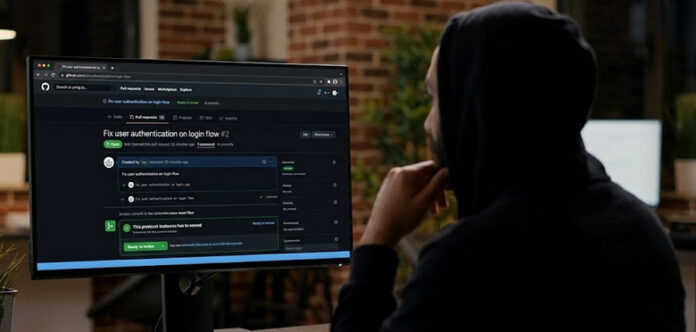The world of technology and law collided spectacularly as Starlink, the satellite firm owned by Elon Musk, found itself entangled in a legal web spun by Brazil’s Supreme Court. The heart of the dispute? The social media platform X, also owned by Musk, which has become the focal point of a judicial order that has not only rattled the tech world but also sparked intense debates over freedom of expression and the limits of judicial authority.
The saga began on 30 August, when Alexandre de Moraes, a Supreme Court Justice in Brazil, issued a ruling that sent shockwaves through the tech community. Moraes ordered the suspension of X in Brazil, a move that came after Musk allegedly refused to appoint a legal representative for the company’s operations within the country. The ruling, which some have criticised as an overreach, was later upheld by a panel of five Justices, cementing the legal quandary in which Starlink and its associated platforms now find themselves.
Starlink, in its characteristic assertiveness, responded with a statement on 3 September via X, labelling the court’s decision as “illegal.” The post directly called out Justice Moraes, indicating that the suspension was not merely a legal disagreement but part of a broader confrontation between the tech giant and the Brazilian judiciary. The satellite company, while complying with the order to block X in Brazil, made it clear that it would pursue all available legal channels to challenge what it sees as an infringement of its rights.
Musk’s response through Starlink has added a layer of complexity to an already intricate situation. The court order did not just suspend X but also froze Starlink’s assets within Brazil, a move that the company claims is not only unjust but potentially unconstitutional. The legal battle, which Starlink has already begun waging, could set a significant precedent for how international tech companies operate within jurisdictions where they may find themselves at odds with local laws.
The root of the court’s order lies in a broader investigation led by Moraes into alleged misinformation spread on X, particularly concerning Brazil’s former President Jair Bolsonaro. The Justice’s decision to suspend X was framed as part of an effort to curtail the dissemination of false information that could potentially undermine public trust and social stability. However, this has been met with widespread criticism, with many arguing that it crosses the line into censorship and could have far-reaching implications for freedom of speech in Brazil.
The legal entanglement has not gone unnoticed by the public, particularly by X users in Brazil, many of whom have taken to other social media platforms to voice their concerns. The suspension of X, according to some users, is a heavy-handed approach that stifles their ability to communicate and engage in discourse, particularly on political matters. For a platform that has prided itself on being a space for free expression, this suspension represents a significant blow to its user base in one of Latin America’s largest and most digitally connected countries.
Despite the court’s order, reports have emerged that many Brazilian X users have found ways to circumvent the suspension by using virtual private networks (VPNs). These tools, which allow users to mask their location and access content as if they were in another country, have become a popular workaround. However, Justice Moraes’s order did not just stop at suspending X; it also included provisions for fines of up to 50,000 reais (approximately £7,100) for those found to be evading the ban. This has created a climate of uncertainty, with users wondering whether their efforts to stay connected could land them in legal trouble.
The fines and the asset freeze have added fuel to the fire, raising questions about the proportionality of the court’s actions. For many, the penalties seem excessive, particularly given the nature of the alleged offence—spreading misinformation. While there is no denying the harmful impact that false information can have, the measures taken by the court appear to some as an aggressive tactic to coerce compliance, rather than a balanced approach to maintaining public order.
Musk, known for his outspokenness, has not shied away from making his displeasure known. Through Starlink, he has voiced his intention to challenge the court’s ruling on multiple fronts. The legal proceedings, which are expected to unfold in the coming weeks, will likely draw significant attention from both legal experts and the tech community. The outcome could have wide-ranging implications, not just for X and Starlink, but for the broader relationship between global tech companies and national jurisdictions.
At the heart of this legal drama is a larger question: How far can, and should, governments go in regulating social media platforms? In an era where misinformation can spread rapidly and have serious consequences, there is a clear need for some level of oversight. However, striking the right balance between regulation and censorship is a delicate task, one that Brazil’s Supreme Court is now grappling with in real-time.
The implications of this case could resonate far beyond Brazil’s borders. As tech companies continue to expand globally, they are increasingly finding themselves subject to the laws and regulations of countries with vastly different legal systems and cultural norms. This can create situations where companies like Starlink and X must navigate complex legal landscapes, balancing compliance with local laws against their broader business interests and ethical commitments.
For Brazil, the outcome of this legal battle will likely influence how the country approaches the regulation of digital platforms in the future. If the court’s decision is upheld, it could embolden other nations to take similarly stringent measures against tech companies, particularly in cases involving misinformation or other forms of online content that are deemed harmful. On the other hand, if Starlink’s legal challenge is successful, it could set a precedent that limits the extent to which national courts can impose restrictions on global platforms.
As the legal proceedings move forward, all eyes will be on Brazil to see how this conflict between a tech giant and the judiciary unfolds. For now, the suspension of X in Brazil remains a contentious issue, with significant implications for the country’s digital landscape. Whether this will lead to lasting changes in how social media platforms operate in Brazil, or simply become another chapter in the ongoing saga of tech regulation, remains to be seen. What is clear, however, is that this case has opened up a new front in the ongoing debate over the power and responsibility of social media companies in the modern world.




